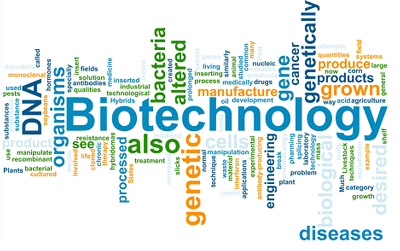Understanding the Basics: A Simple Guide to Defining Biotechnology

What is Biotechnology?
Biotechnology is the use of living organisms, cells, and biological systems to develop new products and technologies that improve our lives. It involves applying biological knowledge and experience to solve problems in medicine, agriculture, and numerous other industries and can encompass a wide range of scientific disciplines, including genetics, molecular biology, and biochemistry.
A Brief History of Biotechnology?
Biotechnology as a field of study has a long and complex history, dating back to ancient times. The ancient Egyptians, for example, used yeasts and bacteria to produce bread, beer, and other fermented foods. In the 1800s, Louis Pasteur’s pioneering work on microbiology laid the foundation for modern biotechnology by demonstrating the role of microorganisms in fermentation and disease.
In the mid-20th century, the discovery of the structure of DNA and the development of genetic engineering techniques paved the way for a new era of biotechnology. Around the 1970s, the first genetically modified organism (GMO) was created, and the use of biotechnology in agriculture and industry began to grow rapidly.
Since then, biotechnology has continued to advance at an impressive rate. Advances in genome sequencing, gene editing, and synthetic biology have opened up new possibilities for biotechnology applications in medicine, agriculture, and environmental science. Biotechnology has played a crucial role in the development of new medicines and vaccines, as well as in the production of food, biofuels, and other industrial products.
Today, biotechnology is a rapidly evolving and multifaceted field that combines expertise from many different scientific disciplines. Its applications continue to expand, and it is expected to play an increasingly important role in addressing some of the world’s most pressing challenges, such as climate change, food security, and human health.
Is Biotech important for Humanity?
Yes, biotechnology is important for humanity in many ways. Biotech has the potential to address some of the world’s most pressing challenges, such as food security, climate change, and disease prevention and treatment.
In agriculture, biotech can be used to develop crops that are more resistant to pests and disease, produce higher yields, and require fewer resources such as water and fertilizer. This can help to ensure a reliable and sustainable food supply for a growing global population.
In medicine, biotech has led to the development of new drugs and therapies for a wide range of diseases, including cancer, diabetes, and HIV/AIDS. Biotech is also being used to develop new diagnostic tools, gene therapies, and personalized medicine, which has the potential to transform healthcare and improve patient outcomes.
Biotechn is also important in environmental science, where it can be used to develop new ways to reduce pollution and waste, create renewable energy sources, and conserve natural resources.
Overall, biotech has the potential to improve the quality of life for people around the world and has already made significant contributions to fields such as medicine, agriculture, and environmental science.





